Opinion
Ahmad Lawan: The Doyen of Nigerian Parliament @64
Published
2 years agoon
By
News Editor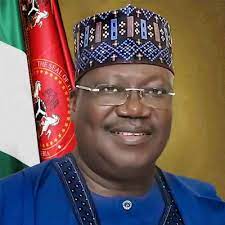
By Ola Awoniyi
Ahmad Ibrahim Lawan, the Distinguished Senator representing Yobe North Senatorial District of Yobe State, turns 64 on 12th January, 2023. Within those almost six and a half decades, he has seen it all, especially in public service. In just about five months from now, he will conclude his tenure as the 14th President of the Nigerian Senate and sixth consecutive session in the National Assembly.
Lawan has been around for so long in Abuja that it is easy to assume he was never elsewhere. Yet, his earliest work experience was in the academia, and it lasted long enough for him to bag a Doctorate degree in Remote Sensing and Geographic Information System (GIS) before yielding to the pull of partisan politics in 1998.
In that calling, Lawan has clearly made his mark. And not just because he attained the dizzying height of third in the order of succession. People see politics as a dirty game. But Ahmad Lawan does not see it that way. For him, politics should not change the core beliefs and principles of an individual. Service to the people should be the driving objective of partisan political practice. And whether in politics or elsewhere, Lawan believes one’s yes must mean yes.
This has, in no small measure, paid off for Lawan in his almost 25 years in politics, 24 of which has been as a federal lawmaker. A member of the pioneer class of the National Assembly of the Fourth Republic, he was first elected in 1999 to the House of Representatives from the Bade/Jakusko Federal Constituency of Yobe State. He was re-elected to the House in 2003. But in 2007, Lawan crossed over from the Green Chamber to the Red Chamber as the Senator for the Yobe North District. He was re-elected to that Senate seat in 2011, 2015 and 2019.
If you know what it takes to win elections in Nigeria, you would appreciate that what multiple winners like Lawan have accomplished is no small feat. His numerous reelections underscore that his constituents appreciate the quality of representation that he has been providing to them in Yobe North District.
The life of a politician is not all gloss as it may sometimes seem. Election is not a tea party. A parliamentarian in particular needs very hard work to get a return ticket from the party. In Parliament, getting the support of colleagues for motions and bills requires deep knowledge and passion for the subject; focus and temperament. It is actually an extra burden if you are a Presiding Officer in parliament. Success or failure at every stage has its implications.
No wonder, Mallam Nasir El Rufai, the outspoken Governor of Kaduna State, at a recent public function in Abuja, said he has no intention of seeking a seat in the National Assembly like many former governors now do.
Speaking as chairman at the second edition of the “Distinguished Parliamentarian Lecture” organised by the National Institute for Legislative and Democratic Studies(NILDS): the governor said:
“The Legislature is one branch of government I know I can never function. The hardwork needed to convince people to support even your motion is something some of us have no patience for. You know management in the Executive is very straightforward. It is very hierarchical and once you are a governor, your word is almost law. But in the Legislature, everybody is equal and there is no management that is more difficult than managing your equals. I don’t envy Mr Speaker and the Senate President at all because their job perhaps is the hardest job in this country. Managing equals is difficult.”
Despite the difficulties, Ahmad Ibrahim Lawan has shone at the National Assembly since its inauguration in 1999. Lawan is today one of only two lawmakers remaining in the National Assembly from the 1999 set. He has also attained the most enviable of heights in his many years of service at Parliament, becoming “first among equals” in the Upper Chamber, which is the very pinnacle of the hierarchy in the parliament of any democratic society. That makes him the Doyen of the Nigerian Parliament.
In his three and a half years as the 14th President of the Senate and Chairman of the ninth National Assembly, he has set a high standard for whoever will be his successors. He has demonstrated the value of parliamentary experience as a prerequisite for election as a presiding officer for the Upper Chamber.
His experience of more than two decades in parliament has made him an encyclopedia on the inner workings of the National Assembly. Lawan has the standing rules at the tip of his fingers. When any of his colleagues raises a Point of Order, he would ask the colleague to specify which order. But before the text is read out, Lawan already knows the provision and its applicability.
As “first among equals,” Lawan knows the importance of fairness in the conduct of the affairs in plenary. Even though the majority will always have its way, the minority must have its say as well.
Lawan knows the value of a bipartisan Legislature. Perhaps the most difficult aspect of the job of a Presiding Officer is to know when to hit the gavel and when not to. As one of Lawan’s aides, I heard him say, many at times, that he had no choice but to hit the gavel or rule in favour of a majority voice vote even when he held a different view to the voice vote. That is democracy.
Lawan also knows the value of promoting harmony between the Legislature and other arms of government, particularly the Executive, without compromising the independence of the Legislature.
Lawan has seen it all in Parliament. From my vintage point of observation, I quickly realized that he did not become the 14th President of the Senate and Chairman of the Ninth National Assembly by happenstance. It was the result of long years of self-preparedness, self-discipline, consistency, perseverance and tenacity of purpose.
Those attributes are essential for success in any endeavour and Lawan obviously learned that very early. And wherever he goes next, they will accompany him and pave the way for more success.
As I wish the Sardaunan Bade a happy 64th birthday, I also wish him more success in his future endeavours.
***Awoniyi is Special Adviser on Media to Senate President
You may like
-


10th Senate: Count Me Out Of Senate Presidency Race – Lawan
-


PDP Govt abandoned Northeast to Boko Haram insurgency – Lawan
-
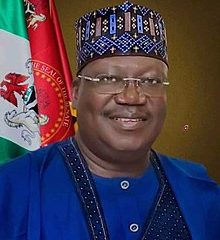

Buhari salutes Senate President Lawan at 64
-


Senate President blasts PDP, to have allowed BoKo Haram to fester
-
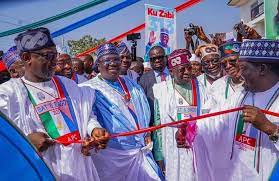

Lawan vows 98 percent Yobe votes will be delivered to Tinubu/Shettima
-
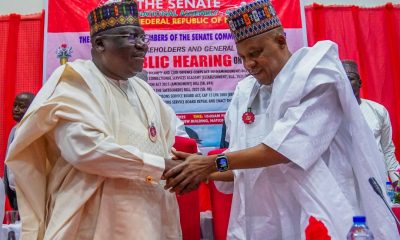

Senate President declares open Public Hearing on six Bills on paramilitary agencies
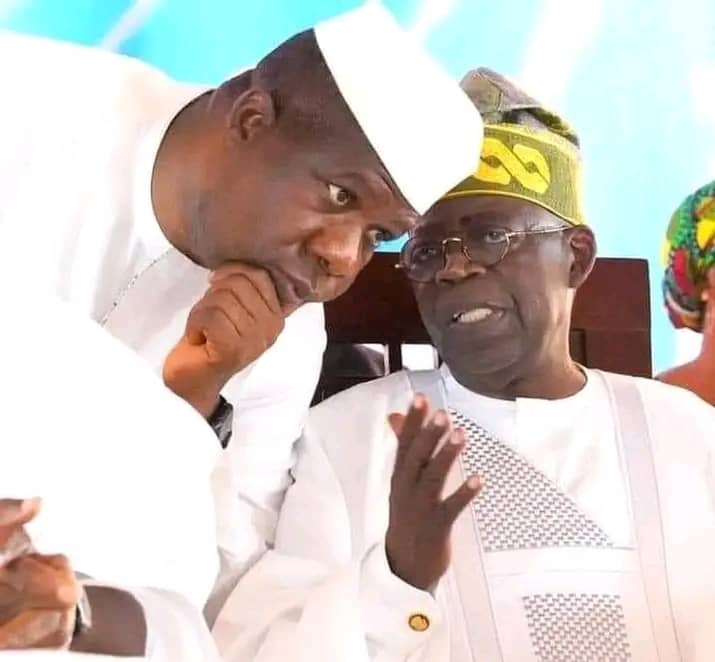
By Senator Opeyemi Bamidele, CON
Today, I celebrate a timeless doyen of democracy and an astute mentor of many leaders, President Bola Ahmed Tinubu, GCFR. By global standards, Asiwaju is truly a man of the people and the visionary of our times, who devoted his life to pursuing the greatest goods to the greatest number of people. This has been the core of his heart and life from when he was a boardroom guru in the 1980s to when he joined partisan politics in the 1990s.
Born on March 29, 1952, Asiwaju’s foray into politics in 1991 was never a mistake, though it came with a huge sacrifice that cost dearly. As a Senator of the Federal Republic of Nigeria, I celebrate how Asiwaju firmly stood with the people rather than dining with the military oligarchy that annulled the outcome of the June 12, 1993 presidential election ostensibly won by Chief M.K.O Abiola (now of blessed memory), an annulment that set our fatherland back to the pre-colonial era.
I also celebrate how Asiwaju teamed up with the progressives to establish the National Democratic Coalition, a movement of likeminds and progressives that fiercely challenged the regime of the late tyrant, General Sani Abacha; mobilised support for the restoration of democracy to our fatherland and campaigned for the recognition of Chief M.K.O Abiola as the winner of the June 12 presidential election. And this conviction and pursuit eventually earned him exile from the land of his birth. Yet, he was undaunted in his quest to see his fatherland liberated from the era of locusts that pitched us against the comity of nations.
I celebrate how Asiwaju returned to Nigeria in 1998 when the darkest era of the late tyrant finally folded into the abyss of extinction after fighting doggedly on the side of the people. The end of the dark era culminated in his election as the third civilian governor of Lagos State in January 1999. Though faced with diverse heinous challenges at the inception, Asiwaju came out strong and victorious, setting Lagos on the path of irreversible progress, reforming the coastal state to a globally competitive smart city and turning it to a constant destination of strategic investment. And the world can no more look away from Nigeria just because of the pro-people reforms he carried out in Lagos.
Asiwaju’s quest for the greatest goods for the greatest number of people pushed him to national politics, the kind of venture that consumed the nationalists and patriots who lived before him. At different times, he challenged the traditional forces that held our fatherland down. He first fought for the soul of our fatherland on the platform of the defunct Action Congress, and it did not entirely produce an enviable outcome. He later switched to the Action Congress of Nigeria, and banished the regressive elements from the six states of the South-west. Full of hope, Asiwaju stressed forth his hands across Benue and Niger, and together, they rescued Nigeria from the hands of the regressives.
At 72, as the President of Nigeria, Asiwaju has brought rare conviction and passion to the business of public governance, courageously daring the forces of regression and tirelessly pursuing the interests of over 227 million regardless of their faith, ideology and race. The task is truly daunting, but the victory is undoubted. Only within 10 months of Asiwaju’s ascendancy to the presidency, we have started witnessing the dawning of economic restoration and the ray of political renaissance under his watch.
As I nostalgically reflect on the journey so far, I remember his labour and toiling for our fatherland, even when most misunderstood. I remember his undying passion to lead the path to a greater nation, even when the future looks so bleak and always unsure. I remember his utter commitment to a movement of patriots and progressives eternally sworn to rescue our fatherland from the claws of the ageless vultures and the blood-thirst beaks of mindless hawks that always seek to feast on the flesh of Nigeria. Despite their ferocity, he eventually subdued the enemies of our souls, even right in the midst of inferno they set ablaze for us all.
That is the reality in our fatherland today. Asiwaju is at the forefront of that reality. And we are all witnesses to this history, even from its making to its maturation. Now, as he graciously turns 72 on this auspicious day, I cannot, but earnestly pray God grants him longer life and inner strength to steadily paddle the ship of our nation to the coast of endless ecstasy.
Heartiest 72nd Birthday, my leader and mentor.
- Bamidele, Leader of the 10th Senate, writes from Abuja
Opinion
Chronicling Deputy Senate President Barau’s 100 days of parliamentary excellence
Published
1 year agoon
September 18, 2023By
News Editor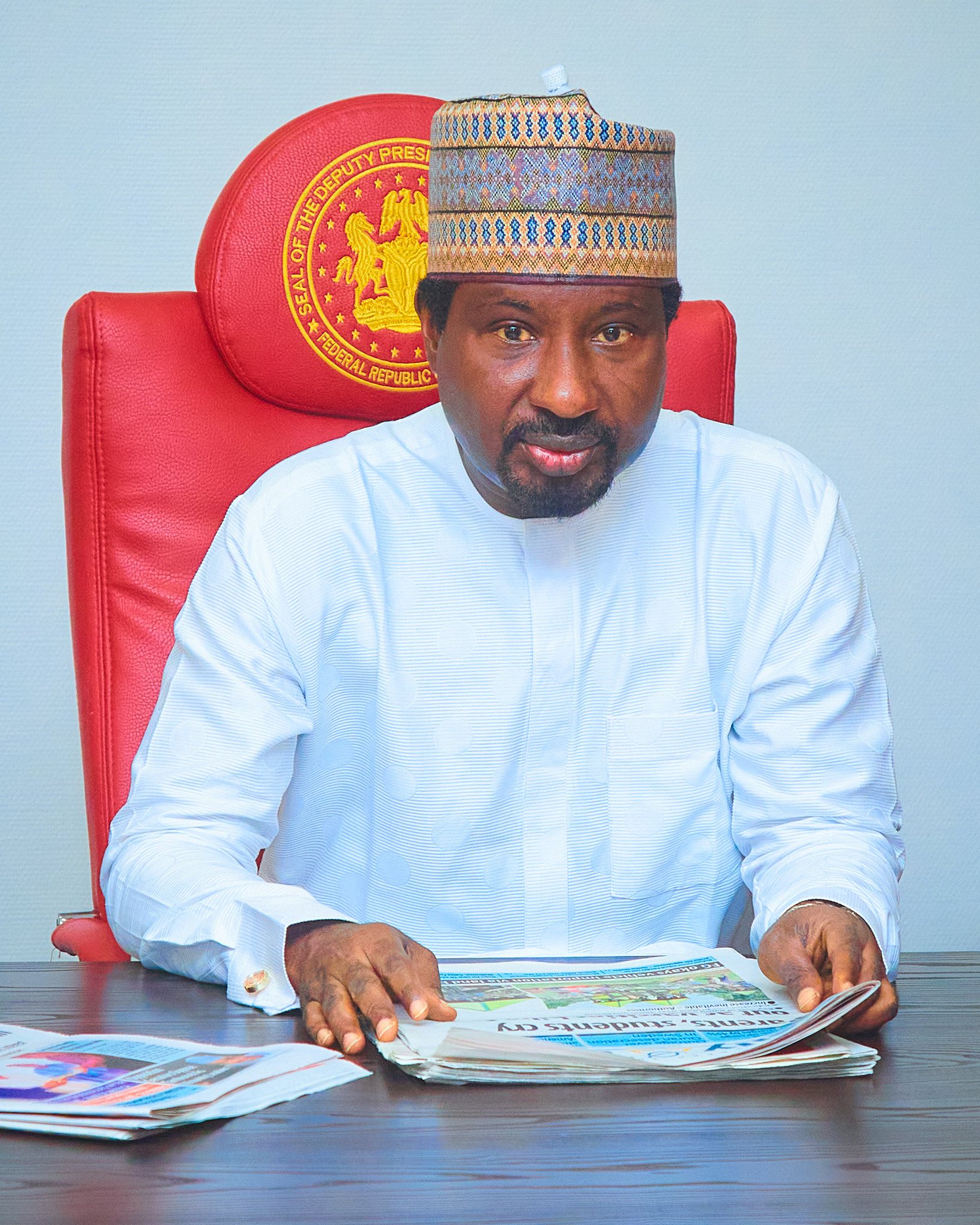
By Ismail Mudashir
Tomorrow, Wednesday, September 20, 2023, the 10th Senate will mark its first 100 days following its inauguration on June 13, this year.
The inauguration of the parliament followed President Bola Ahmed Tinubu’s proclamation, via a letter to the Clerk to the National Assembly, Sani Magaji Tambawal, in line with Section 64(3) of the 1999 Constitution.
The first duty of the senators was the election of the presiding officers – the President of the Senate and the Deputy Senate President. After a keen contest, Senator Godswill Akpabio, from Akwa Ibom State, emerged as the President of the Senate, defeating Senator Abdulaziz Yari, a former governor of Zamfara State.
Apparently, because of his rare personality traits, Senator Barau I. Jibrin, a fourth timer at the National Assembly (three times in the Senate – 2015 to date and once in the House of Representatives – 1999 -2003) emerged as the Deputy President of the Senate unopposed as all his colleagues threw their weight behind him.
Three weeks after the emergence of the two presiding officers, eight principal officers were named, thus the leadership of the 10th Senate was duly constituted. With the constitution of the leadership, the lawmakers got the parliamentary work started as urged by the President of the Senate, Senator Akpabio, in his speech on July 4, 2023, titled, “Let’s get the work started.”
On July 6, Senator Barau, for the first time, presided over the plenary session. During the session, five motions were moved including the one on Mallam Aminu Kano International Airport, Kano.
After the July 6 session which attracted applause from across the Red Chamber and beyond, Senator Barau had presided over the plenary on other occasions in the absence of the President of the Senate in the last 100 days.
Among the critical motions sponsored by the Deputy President of the Senate during the period under review was the one on the poor state of road infrastructure and the menace of gully erosion in the country. Also to his credit was a motion on the emergence of President Tinubu as the Chairman of the Economic Community of West African States (ECOWAS).
Four bills of the Deputy President of the Senate, including the one on the creation of a development commission to fast-track the development of the country, have been introduced at the Red Chamber.
* Balanced appointments
Recognizing the heterogeneous nature of the country, the Deputy Senate President selected his seven key appointees from across the country – four were drawn from Kano State – two from the southern part of the country – Oyo and Imo states, and one from Kwara State – North Central geopolitical zone.
The appointees who hail from Kano State include the Chief of Staff, Professor Muhammad Ibn Abdullahi; the Special Adviser (Policy & Monitoring), Professor Bashir Muhammad Fagge; the Special Adviser (Political), Yusuf Aliyu Tumfafi and the Special Assistant (Media & Publicity), Shitu Madaki Kunchi.
The Special Adviser (Media & Publicity), Ismail Mudashir, hails from Kwara State; the Special Adviser (Special Duties), Idris Abiola Ajimobi, Oyo State; and the Special Adviser (Administration), Mrs. Ngozi Ndawi Nkemdirim, from Imo State.
Commendations have followed what has been described by lawmakers, media practitioners, civil society organisations, and other stakeholders in the country as balanced appointments.
* Constituents driven representation
For Senator Barau, his representation has been constituents and pro-masses driven. Hence the unfettered access he grants to people from Kano North, Kano State, and beyond; the old, young, rich, and poor; APC members and members of other parties.
For instance, in August, he instituted a scholarship programme through which hundreds of tertiary institution students from Kano North Senatorial District were given N50,000 each. The programme was flagged off at Bayero University Kano (BUK).
Before the scholarship scheme, the Deputy President of the Senate had paid WAEC and NECO fees for hundreds of secondary school students.
To boost agriculture in the state, Senator Barau also distributed fertiliser to farmers across the 44 local government areas of the state.
According to beneficiaries, this initiative would enhance their output and contribute towards attaining food security in the state and country.
On September 6, the people of Rimindako community in Bagwai LGA of Kano State, through a human rights activist, Barrister Muhammad Zubair, lauded the Deputy President of the Senate over the construction of Yasanya bridge and access road in their community.
· Visits Abuja Industrial Park
On the invitation of the Zeberced Group, the Deputy President of the Senate was at the Abuja Industrial Park located in the Idu Industrial District on September 4. Sitting on 245 hectares of land, the park will house 200 factories, a helipad, a train station, a lorry park, a bank, a recycling station and a power plant, among others when completed.
The park is an initiative of the Zeberced Group, jointly founded by Adil Aydin Kurt and Cemal Kurt from Turkey. The company’s Managing Director, Aidl Aydin Kurt, conducted Senator Barau around the project. Kurt told his visitor that the project when completed will provide 40,000 direct jobs to Nigerians.
Moved by the 40,000 jobs to be created , Senator Barau said the parliament would provide the necessary legislative support to the company, saying the project was in line with the commitment of the federal government to address unemployment, boost and diversify the country’s economy.
* Keeping parliament alive during recess
Even with the annual recess embarked upon by the parliament on August 7, the office of the Deputy President of the Senate has been active, five days a week (Mondays – Fridays), with Senator Barau performing official engagements. During the period, he met with ministers, heads of agencies, civil society/pressure groups including the promoters of Tiga and Gari states, clerics, and party leaders, among others.
During their visit, stakeholders of the All Progressives Congress (APC) in Kano North Senatorial District, led by Hon. Sani Mukaddas, hailed Senator Barau, describing him as an exceptional lawmaker and leader.
In the same vein, a forum of former zonal women leaders of the APC has thumped up Senator Barau, saying he is not discriminatory in his dealings with all.
“Continue to support us, we won’t disappoint you, Insha Allah,’’ were the words of the Deputy President of the Senate to those who visited him. He also assured them of the commitment of the parliament to support the executive with the necessary legislation to address the challenges facing the nation.
Mudashir is the Special Adviser on Media and Publicity to the Deputy President of the Senate
Opinion
Predictable Budget Cycle: A great Legacy of Ninth N’Assembly
Published
2 years agoon
January 3, 2023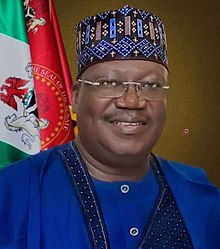
By
Ola Awoniyi
Shortly after his emergence in 2019 as the 14th President of the Senate and Chairman of the Ninth National Assembly, Ahmad Ibrahim Lawan promised to ensure the 2020 Appropriation Bill was passed and signed into law by the President before the end of that year. That promise would have sounded outlandish in many ears and many would have dismissed it outright as a flight of fancy induced by Lawan’s euphoria of electoral victory.
Going by precedent under the Fourth Republic, there were valid reasons for such scepticism.
By 2019, it had become normal for the Appropriation Bill to come into law not earlier than the first quarter or even in the middle of the budget year. This was in spite of the apparent injury the delay was delivering to government’s annual spending plans and the economy.
How to reset the budget cycle or financial year to run from January to December as was the case in distant past had confounded and beaten the previous National Assemblies. But that was not for lack of efforts on this part of the federal lawmakers. Session after session, they visibly worked to instal a steady, reliable and predictable January to December budget cycle. That just didn’t happen, for many reasons.
However, with great determination, strategic thinking and multipartisan cooperation in the Chambers, under a new milieu of effective collaboration amongst the Arm of Government, the Ninth National Assembly achieved the feat on first attempt in December 2019!
The impacts of timeous passage of Appropriation Bills on budgetary performance, governance and the general economy have been severally articulated by economic experts.
Even at the best of times, the Nigerian economy has needed every positive effort it can get for revamping it. The COVID-19 pandemic, the Russia/Ukraine war and sundry local challenges make such efforts even more imperative now. Imagine, some of the advanced economies are already reeling in or tottering at the edge of recession.
Of course the Nigerian economy too slid into recession twice in recent past. But on each occasion, it quickly pulled out. The quick recovery was significantly enhanced by the effective collaboration and proactive interventions of the NationalAssembly.
It is on record that the performance of the budget has improved under the new stable cycle to such extent that the performance numbers are now almost hundred percent.
This is one of the achievements for which the Ninth Assembly has not been granted the deserved credit.
Instead, the doubting Thomases and mocking birds did not immediately stop laughing. Even while some acknowledged the feat, they doubted it could be sustained.
However, it has. In 2020 and 2021. And now again, the Appropriation Bill 2023 was passed by the Assembly on 28th December, 2022.
According to the Senate President, it would have been passed even earlier, before the lawmakers went on Christmas recess, but for some problems that emanated from the Executive in the process of preparing the Appropriation Bill. Those problems, later resolved through collaborative efforts, delayed but did not frustrate timeous passage of the Bill.
Therefore, President Muhammadu Buhari signing the Appropriation Bill 2023 into law on Tuesday 3rd January, 2023, which was the first work day in 2023, is historic. Not just for the National Assembly but for the country at large.
Yet, it is particularly historic for the Ninth Assembly because that is its last Appropriation Bill as its tenure ends in June this year.
It is noteworthy that the virus of late passage of Appropriation Bills year in year out had infected even state Houses of Assembly. But with the action of the Ninth Assembly setting good example at the national level, the trickle down effect has encouraged a turn around in the process in the states too. Many state governments have embraced this new culture at the national level and those that were not doing well before in that regard have taken the new cue from Abuja.We have seeing virtually all state Governors signing Appropriation Bills before the end of the year.
There is yet another innovation that has been entrenched in the country’s financial system by the Ninth Assembly. This has to do with the practice of approving the Finance Bill side by side the Appropriation Bill. The Finance Act provides the support base for an effective implementation of the Appropriation Act through some major reforms in fiscal policies of the government.
For instance, the 2022 Finance Act, which was passed same day shortly before the 2023 Appropriation Bill was passed, is to facilitate amendment to some fiscal laws as the Capital Gains Tax, Company Income Tax, Customs Excise Act, Federal Inland Revenue Service Act, Personnel Income Tax and Stamp Duty Act.
The Ninth Assembly has made it a tradition to pass this piece of legislation alongside the Appropriation Bill and this is another legacy that the succeeding Assemblies must sustain. All these feats are made possible by the effective and efficient collaboration between the National Assembly and the Executive arm of government.
Also, through this cordiality, the Ninth National Assembly has accomplished all the items in its Legislative Agenda months ahead of the expiration of its tenure in June. It may also be difficult for some people to believe, but this Assembly has passed more Bills than any other before it. The Senate President, Ahmad Lawan, noted recently at a public gathering that President Buhari has signed more Bills into law that were passed by this Assembly than any of his predecessors had done under any Assembly.
The tenure of the Ninth Assembly under Ahmad Lawan’s watch has less than six months to run out.
However, its legacy and work rate guide us to expect more accomplishments from it until its last day.
*Awoniyi is Media Adviser to Senate President
Latest News
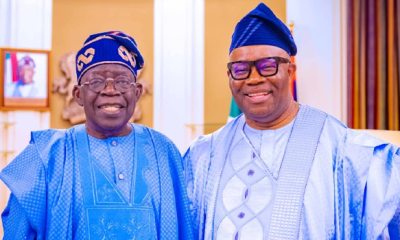

Nigeria Was On Life Support When Tinubu Assumed Office – Akpabio
ShareThe Senate President and Chairman of the 10th National Assembly, Senator Godswill Akpabio, has said the country was on a...


Dangote Refinery, Ardova Plc Strike Bulk Purchase Deal
ShareAs part of the measures to guarantee supply security of fuel at affordable prices for its customers, Ardova Plc, one...


Lakurawa Terrorists, Not Bandits Responsible For Zamfara Explosion — Police
ShareThe state’s police commissioner says members of the dreaded group were seen around the scene of the incident shortly before...
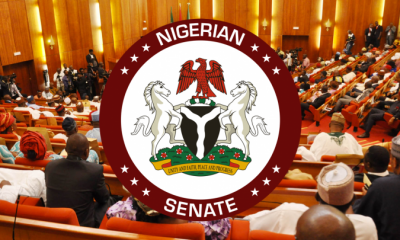

Senate Sets Up Committee To Review Tax Reform Bills With AGF
ShareThe Senate on Wednesday set up a committee to to review the controversial Tax Reform Bills that are before the...


Gov Sanwo-Olu Signs Lagos Electricity Bill Into Law
ShareThe Lagos State Electricity Law 2024 is a comprehensive plan of Governor Sanwo-Olu’s resolve to address longstanding challenges in the...
